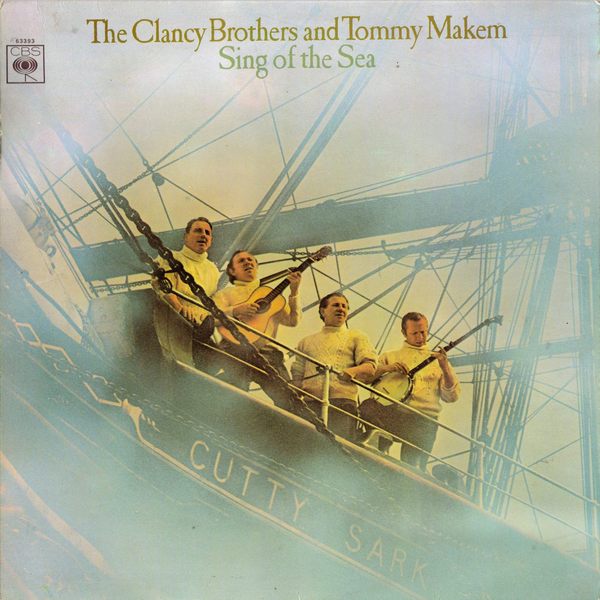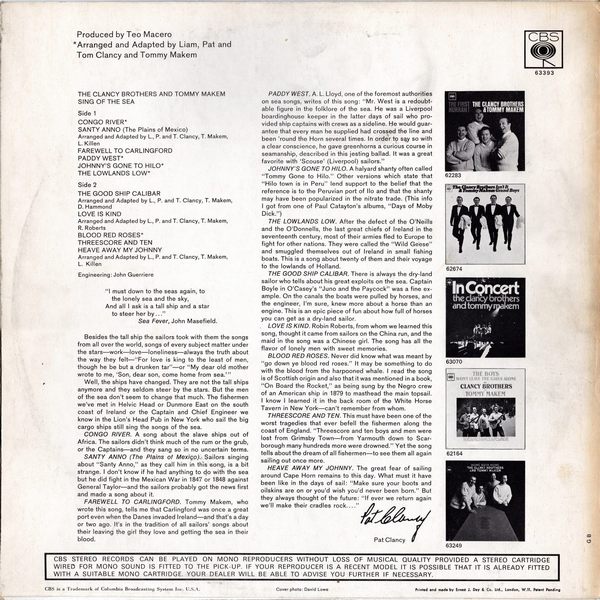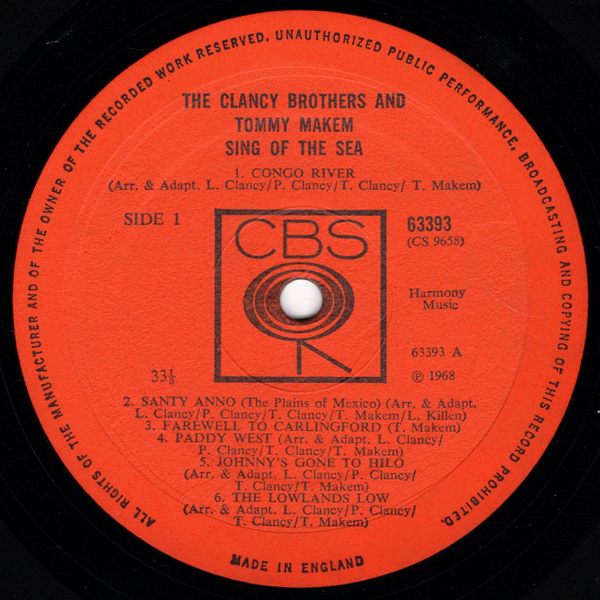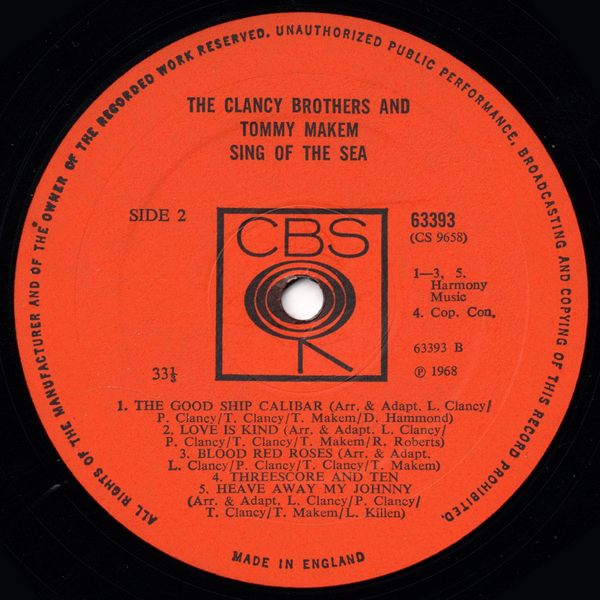

 |



|
Sleeve Notes
"I must down to the seas again, to
the lonely sea and the sky,
And all I ask is a tall ship and a star
to steer her by..."
Sea Fever, John Masefield
Besides the tall ship the sailors took with them the songs from all over the world, songs of every subject matter under the stars — work — love — loneliness — always the truth about the way they felt — "For love is king to the least of men, though he be but a drunken tar" — or "My dear old mother wrote to me, 'Son, dear son, come home from sea.'"
Well, the ships have changed. They are not the tall ships anymore and they seldom steer by the stars. But the men of the sea don't seem to change that much. The fishermen we've met in Helvic Head or Dunmore East on the south coast of Ireland or the Captain and Chief Engineer we know in the Lion's Head Pub in New York who sail the big cargo ships still sing the songs of the sea.
CONGO RIVER — A song about the slave ships out of Africa. The sailors didn't think much of the rum or the grub, or the Captains — and they sang so in no uncertain terms.
SANTY ANNO (The Plains of Mexico) — Sailors singing about "Santy Anno," as they call him in this song, is a bit strange. I don't know if he had anything to do with the sea but he did fight in the Mexican War in 1847 or 1848 against General Taylor — and the sailors probably got the news first and made a song about it.
FAREWELL TO CARLINGFORD — Tommy Makem, who wrote this song, tells me that Carlingford was once a great port even when the Danes invaded Ireland — and that's a day or two ago. It's in the tradition of all sailors' songs about their leaving the girl they love and getting the sea in their blood.
PADDY WEST — A. L. Lloyd, one of the foremost authorities on sea songs, writes of this song: "Mr. West is a redoubtable figure in the folklore of the sea. He was a Liverpool boardinghouse keeper in the latter days of sail who provided ship captains with crews as a sideline. He would guarantee that every man he supplied had crossed the line and been 'round the Horn several times. In order to say so with a clear conscience, he gave greenhorns a curious course in seamanship, described in this jesting ballad. It was a great favorite with 'Scouse' (Liverpool) sailors."
JOHNNY'S GONE TO HILO — A halyard shanty often called "Tommy Gone to Hilo." Other versions which state that "Hilo town is in Peru" lend support to the belief that the reference is to the Peruvian port of Ilo and that the shanty may have been popularized in the nitrate trade. (This info I got from one of Paul Catayton's albums, "Days of Moby Dick.")
THE LOWLANDS LOW — After the defect of the O'Neills and the O'Donnells, the last great chiefs of Ireland in the seventeenth century, most of their armies fled to Europe to fight for other nations. They were called the "Wild Geese" and smuggled themselves out of Ireland in small fishing boats. This is a song about twenty of them and their voyage to the lowlands of Holland.
THE GOOD SHIP CALIBAR — There is always the dry-land sailor who tells about his great exploits on the sea. Captain Boyle in O'Casey's "Juno and the Paycock" was a fine example. On the canals the boats were pulled by horses, and the engineer, I'm sure, knew more about a horse than an engine. This is an epic piece of fun about how full of horses you can get as a dry-land sailor.
LOVE IS KIND — Robin Roberts, from whom we learned this song, thought it came from sailors on the China run, and the maid in the song was a Chinese girl. The song has all the flavor of lonely men with sweet memories.
BLOOD RED ROSES — Never did know what was meant by "go down ye blood red roses." It may be something to do with the blood from the harpooned whale. I read the song is of Scottish origin and also that it was mentioned in a book, "On Board the Rocket," as being sung by the Negro crew of an American ship in 1879 to masthead the main topsail. I know I learned it in the back room of the White Horse Tavern in New York — can't remember from whom.
THREESCORE AND TEN — This must have been one of the worst tragedies that ever befell the fishermen along the coast of England. "Threescore and ten boys and men were lost from Grimsby Town — from Yarmouth down to Scarborough many hundreds more were drowned." Yet the song tells about the dream of ail fishermen — to see them all again sailing out once more.
HEAVE AWAY MY JOHNNY — The great fear of sailing around Cape Horn remains to this day. What must it have been like in the days of sail: "Make sure your boots and oilskins are on or you'd wish you'd never been born." But they always thought of the future: "If ever we return again we'll make their cradles rock … "
Pat Clancy